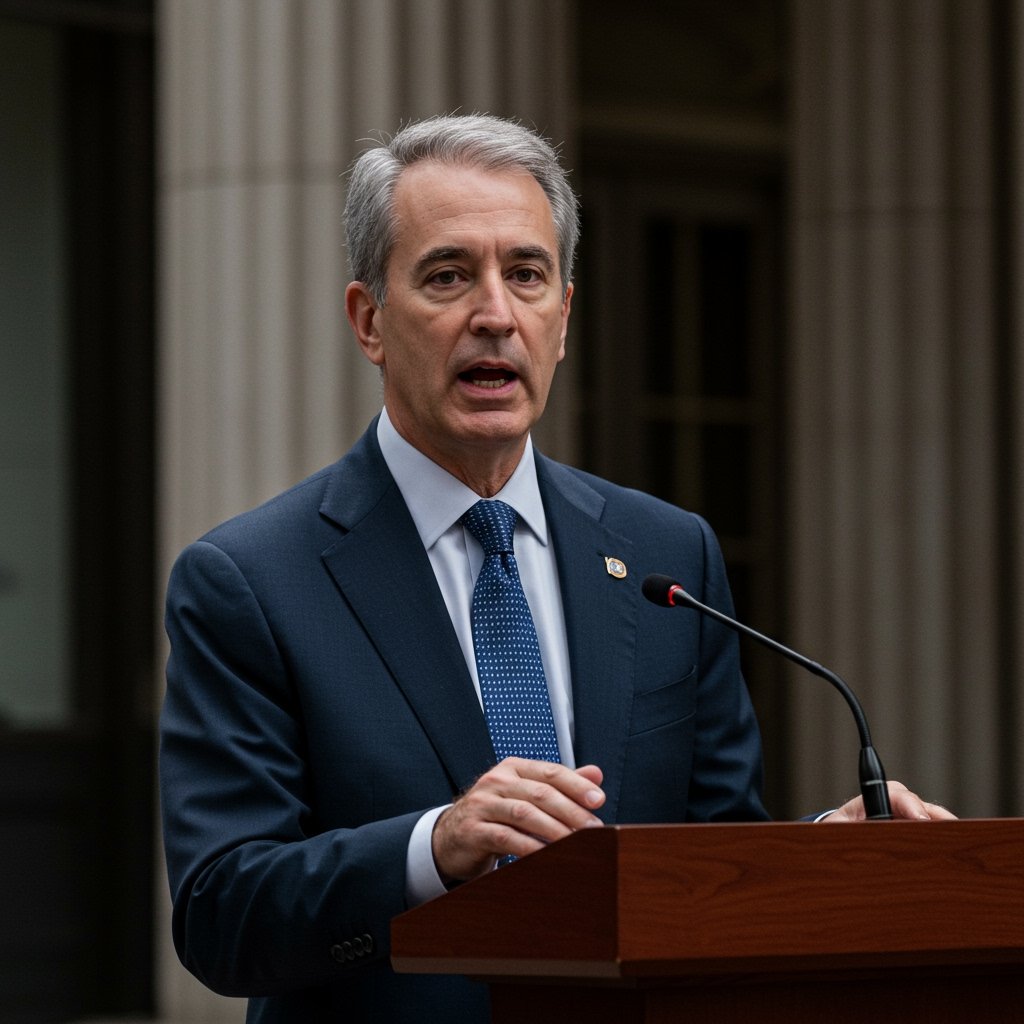California Weighs Sweeping AI Regulation Bill
Sacramento, CA — California lawmakers have officially commenced detailed committee hearings on a pivotal legislative proposal aimed at establishing a comprehensive framework for the regulation of advanced artificial intelligence (AI) systems across the state. Introduced on February 10, 2025, Assembly Bill 789 (AB 789), spearheaded by Assemblymember Lena Rodriguez, a representative from San Jose, marks a significant effort by California to proactively address the rapidly evolving landscape of AI technology and its potential societal impacts.
AB 789 is designed to create statewide regulations governing both the development and deployment of sophisticated AI technologies. The bill’s proponents argue that without thoughtful legislative intervention, the unchecked proliferation of powerful AI could lead to significant societal disruption, particularly concerning employment.
Key Provisions of Assembly Bill 789
The proposed legislation outlines several key mandates intended to foster responsible AI innovation while mitigating potential harms. At its core, AB 789 proposes strict transparency requirements for AI systems. This means developers and deployers would potentially be required to disclose certain information about how their AI models are built, trained, and intended to be used. The goal is to shed light on the often opaque ‘black box’ nature of advanced AI, allowing regulators, experts, and the public to better understand their functionality and potential risks.
A second major component is the requirement for mandatory societal impact assessments. Under AB 789, developers of certain advanced AI systems deemed to be high-risk would need to conduct thorough studies evaluating the potential effects of their technology on various aspects of society, including labor markets, civil liberties, and equity. These assessments would likely need to be submitted to state regulators before the AI system could be widely deployed.
Perhaps the most contentious aspect of the bill involves potential restrictions on specific AI applications. AB 789 includes provisions that could allow for limitations or even prohibitions on AI systems deemed to pose significant risks of mass job displacement. The bill specifically highlights concerns in sectors like transportation and customer service, areas where automation powered by AI is already showing capabilities that could drastically reduce the need for human workers.
Assemblymember Rodriguez and the bill’s supporters emphasize that the intent is not to stifle innovation entirely, but to ensure that AI development proceeds in a manner that is beneficial to society as a whole and does not leave large segments of the workforce behind without adequate preparation or safety nets.
Industry Reacts Strongly to Proposed Regulations
The legislative hearings have provided a platform for divergent viewpoints, most notably pitting the tech industry against labor groups and consumer advocates. Representatives from some of the world’s largest technology companies, including executives from Silicon Valley giants, have voiced strong opposition to AB 789. Their primary argument centers on the potential negative impact on innovation.
Industry critics contend that the proposed regulations are overly broad, burdensome, and could stifle the rapid pace of AI development. They argue that imposing strict transparency rules and mandatory impact assessments could create significant compliance costs and administrative hurdles, particularly for smaller startups. Furthermore, the prospect of outright restrictions on certain AI applications based on potential job displacement is seen by many in the tech sector as a barrier to technological progress and economic growth.
Executives testifying before the committees warned that such regulations could make California less competitive on the global stage, potentially driving AI research and development to other states or countries with less stringent oversight. They advocate for a more cautious approach, suggesting that the industry should be given more latitude to self-regulate or that any governmental intervention should be less prescriptive and more focused on specific, proven harms rather than potential future risks.
Labor and Consumer Advocates Champion Safeguards
In stark contrast to the tech industry’s position, labor groups and consumer advocates have offered compelling testimony in support of AB 789. These groups emphasize the urgent need for safeguards to protect workers and the public from the potential downsides of advanced AI.
Labor representatives highlighted the very real concerns about job displacement, particularly for workers in industries vulnerable to automation like trucking, delivery services, call centers, and retail. They argue that without proactive regulation, AI could exacerbate economic inequality and create widespread unemployment without adequate plans for retraining or social support systems. They see AB 789’s provisions for impact assessments and potential restrictions on high-risk job-displacing AI as essential tools to manage this transition responsibly.
Consumer advocates focused on the transparency requirements and societal impact assessments, arguing they are crucial for ensuring accountability and preventing AI systems from being deployed with unintended or harmful consequences, such as algorithmic bias, privacy violations, or manipulation. They assert that the public has a right to understand how powerful AI technologies that affect their lives are developed and operated, and that mandatory assessments are necessary to identify and mitigate risks before they cause widespread harm.
Both labor and consumer groups praised Assemblymember Rodriguez’s initiative, framing AB 789 as a necessary step to ensure that AI serves humanity rather than displacing or disadvantaging significant portions of the population.
The Road Ahead for AB 789
The initial committee hearings represent the first step in a potentially lengthy legislative process. The opening debates have clearly illustrated the deep divisions and complex issues surrounding AI regulation. The committees are scheduled to hold further votes on the bill throughout March 2025.
In addition to committee votes, the legislative calendar for March 2025 also includes periods specifically allocated for further public comment. These sessions will provide additional opportunities for stakeholders, experts, and concerned citizens to voice their perspectives on AB 789’s provisions. The input gathered during these periods will be crucial in shaping potential amendments as the bill progresses.
Should AB 789 successfully navigate the committee process, it would then move to the full Assembly floor for a vote, before potentially advancing to the State Senate for consideration. The debate is expected to remain intense, reflecting the high stakes involved for both the future of California’s technology sector and the well-being of its workforce.
The outcome of the legislative battle over AB 789 in California is being closely watched nationwide, as it could set a precedent for how other states and even the federal government approach the complex challenge of regulating advanced artificial intelligence in the coming years.


















